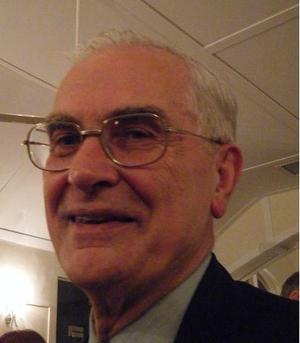Jeremy Torr caught up with Lord Oxburgh when he visited Singapore a few weeks ago to deliver this month’s Distinguished Visitor Lecture for the British High Commission.
Singapore, 26 July 2010. “Over the last five years, it seems we may have forgotten the simple basics of climate change,” says Lord Oxburgh, geologist, professor, Fellow of the Royal Society, ex-Chief Scientific Advisor to the UK government, and president of the Carbon Capture and Storage Association.
“Climate change is intrinsically variable in space and time,” he says. “It’s been going on for millennia.” He points out that in Antarctica, some 270 glaciers are retreating – but 30 are actually advancing. The effects that are measured in any one place can be tweaked to fit anybody’s theory – proving or disproving climate change. Says Lord Oxburgh, “We need to take a step back and look long term.”

Lord Oxburgh - "Work together, not ignore climate change"
He takes a very simple baseline for his long-term look; that of carbon dioxide levels (CO2) in the atmosphere. CO2 has a greater effect on earth temperature than any other gas, and it is relatively easy to measure. “Across the last 700,000 years, CO2 has varied quite a lot, mainly corresponding with the ends of Ice Ages. If you narrow your view to 60,000 years, then 19,000 years the effects are the same – the ice age ends and the CO2 levels go up,” he points out. So high levels of atmospheric CO2 are nothing new.
But - and this is where he introduces a big but - 150 years ago humans started to burn coal. This boosted CO2 levels, although not to a level above anything that had been seen before. The massive difference this time was the proportion and the speed with which CO2 increased. “The amount of CO2 suddenly shot up by 36%, something that had never happened before,” he advises. The evidence is incontrovertible, he says. Humans are making the planet warmer – with significant side effects on our habitat.
Hotting Up
There will be a rise in sea level. The oceans will become warmer and more acidic. There will be more extreme weather events like hurricanes and storms. There will be more rain. “We should all be very bothered about these things,” he says. “It’s like a pan of water that starts boiling.”
All this atmospheric mayhem can be squarely leveled at Europe and the United States – where, says Lord Oxburgh, some 60% of the world’s CO2is produced. This means, in straight quantity per person terms, the CO2bogeys are easy to identify. And the US and Europe are doing their bit – wind power, water power, solar power are all being rolled out rapidly across the first world, in a bid to reduce emissions. The issue that concerns Lord Oxburgh is that the other major CO2producers, who produce much less on a per person basis, are catching up fast simply through sheer population mass.
“China today only puts out about half of the CO2the US does, but the US is trying to scale back,” he points out.
China on the other hand is looking at a dramatic increase in the number of its (coal fired) power stations. Which could mean a significant increase in atmospheric CO2. The knee-jerk reaction for the first-worlders, says Lord Oxburgh, is to tell the developing countries like China and India to stop polluting by cutting back on power stations – but is that fair?
Working Together
“What can we do?” asks Lord Oxburgh. “The only reasonable thing is to help these countries burn coal and other carbon-based fuels in a sensible way. Which at the moment means using carbon capture to stop those gases getting into the atmosphere,” he says.
According to him, it is the responsibility of the developed countries to help the new power using countries to capture their carbon – not deprive them of power sources. “At the moment, we are only using depleted oil and gas fields to store CO2but, it is still an immature technology. We urgently need to develop better approaches,” he says.
“We also need to be careful of the sinister arguments from professional lobbyists who, like the tobacco companies, put out misleading information,” he asserts. According to him, the evidence clearly indicates a very serious situation. “It’s a war. We are fighting a war,” he says.
“No matter what the cost, inactivity will prove to be much more costly than doing something; anything,” he says. We have been warned.
Photography by Jeremy Torr